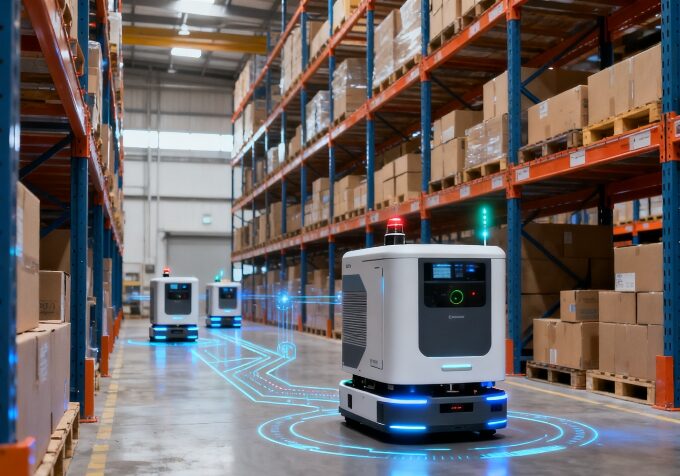A code created by humans is attempting to help predict human fate, making death seem less unpredictable. Recently, a research team from the Technical University of Denmark claims to have designed an artificial intelligence death predictor. The model, named “Life2vec,” utilizes powerful machine learning algorithms to analyze the sequential events that make up an individual’s life, predicting various significant life events such as lifespan, disease risk, future income, and more.
The effectiveness of the predictor seems notable based on research results. The model boasts an accuracy of up to 78% in predicting death, surpassing other current AI models or methods used by insurance companies by 11%, as per the reports.
The key to its success lies in highly specific data. The researchers collected a decade of daily life records for six million individuals, including information on education, health, income, and occupation, from the Danish National Registry.
Training the model with data from over 2.3 million individuals aged 35 to 65 between January 1, 2008, and December 31, 2015, the researchers explained that this age group was chosen because predicting mortality in this range is more challenging.
To enable “Life2vec” to comprehend this data, the team encoded every aspect of human life into a sequence of code. For instance, S52 represents a forearm fracture, and POS3513 signifies that the person is a computer systems technician. Individual life events were treated as words in a sentence, forming a detailed “personal life sequence” based on chronological order.
“We utilize the technology behind ChatGPT to analyze human lifespan, employing a method that represents events occurring in each person’s life as a sequence,” stated the author, Suun Lehmann. “Just like language, the order in which life events occur is crucial.”
Similar to the principles behind ChatGPT, “Life2vec” infers future events by analyzing vast amounts of data. If asked a question like “Will I die within four years?” it examines past life events, including thoughts, feelings, behaviors, and factors such as genetics or environment that might influence survival. The model then assigns probabilities to different scenarios using statistical models, estimating future events or death risk.

To test the model’s effectiveness, researchers had it predict the time of death for randomly selected anonymous individuals. They used a dataset of 100,000 people, half of whom died within four years after 2016, and the other half survived. The algorithm accurately predicted whether a person would live past 2020 with a surprising 78% accuracy.
The “Life2vec” model achieves the ability to predict death, benefiting from robust data support and the evolution of large model algorithms capable of capturing extensive unstructured word sequences.
“The model leverages the capability of attention mechanism models to unearth hidden deep features within sequences, making it easier to fit predictive targets. This holds great potential in scenarios beyond language,” stated Wang Taifeng, Head of AI Algorithms at BioGraphene, in an interview with Interface News.
In the past, large models were primarily applied in scientific fields such as natural language and image processing, with limited application in broader scientific and socioeconomic domains.
“The main difference between scientific and broader social sciences (including linguistics) lies in the presence of objective laws in scientific fields. This means large models can derive insights from these laws, not solely relying on the data itself,” explained researchers from DeepForceTech. “However, human life is a complex system, and the progress of AI in the life sciences requires domain experts to break down these issues into specific problems that AI can effectively address.”
In addition to predicting death, this model exhibits a certain level of versatility, predicting subjective human details such as personality traits, happiness levels, and career outcomes. For instance, it can predict career outcomes based on individuals’ past work experiences, informing individuals about potential job changes or early retirement.
The greater value of “Life2vec” lies in providing information and guidance. In the future, it could integrate various factors such as lifestyle, genetic makeup, and income to offer more scientifically accurate analyses in health risk prediction and personalized treatment plans.

However, “Life2vec” still has many drawbacks and risks, with data security being a significant concern. Due to the model’s need for extensive personal data, including income and medical history, there are concerns that knowledge of an individual’s disease risk could potentially impact employment or insurance.
Furthermore, the reliability of prediction results cannot be entirely guaranteed. A product expert from a leading large model enterprise explained to reporters that prediction results could be influenced by factors such as data quality, model parameters, and model assumptions, introducing uncertainties.
At the same time, whether individuals want to know how long they will live remains undecided. For most ordinary people, knowing about their mortality might lead to increased anxiety, and the subsequent life might be spent in prolonged apprehension.
To protect the personal privacy information of Danish citizens used for training, the AI model has not been made available to the public or insurance companies. According to Lehmann, the creator, Life2vec is not ready to perform any “real-world tasks” in its current state. Moreover, considering economic and social differences, it is unclear whether the model can be applied to other countries.













Leave a comment